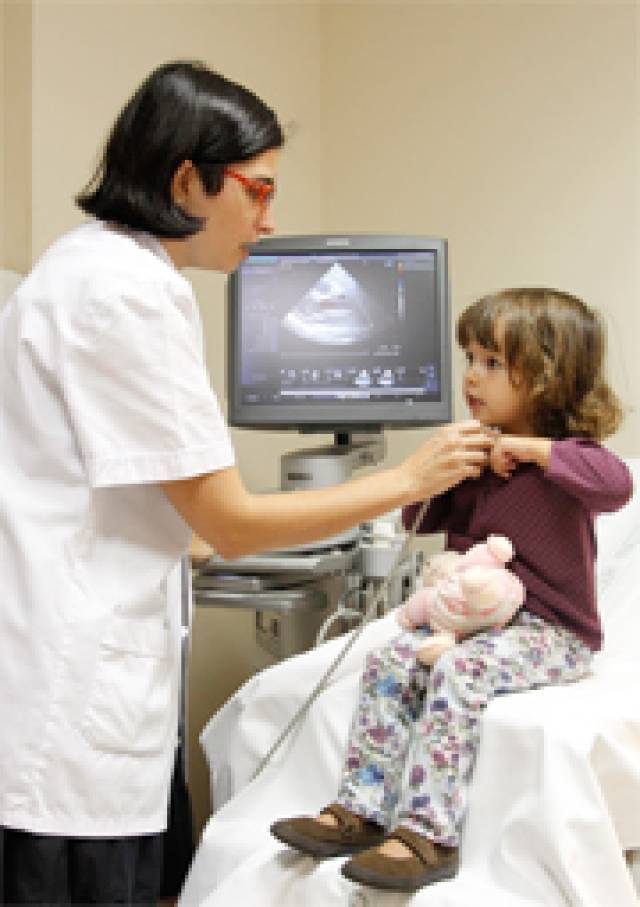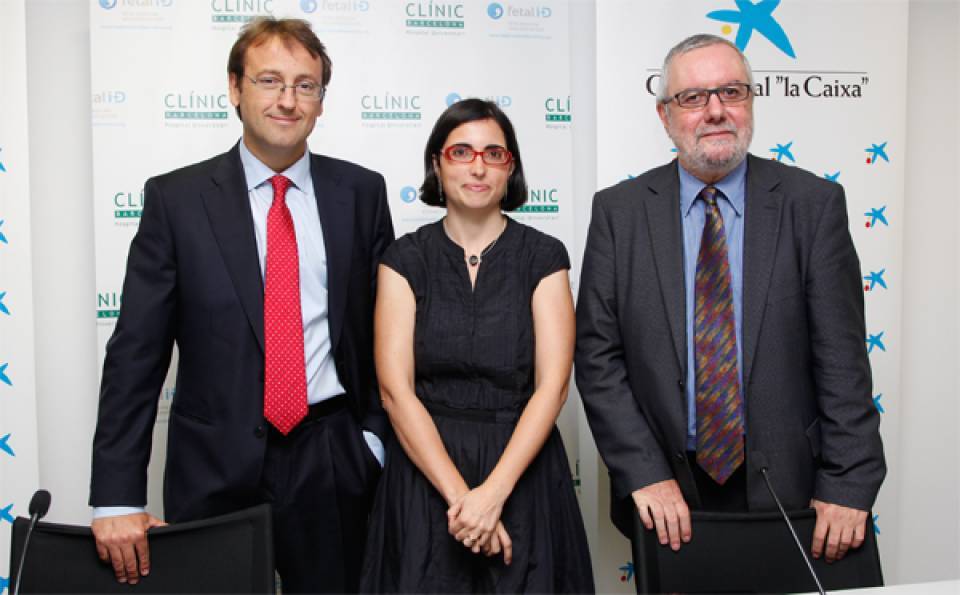This is an ambitious study involving the services of Perinatal Medicine and Gynecology at Hospital Clínic, the Cardiology Services of Hospital Clínic and Hospital Sant joan de Déu, and researchers from the University Pompeu Fabra. The research has been supported by the Obra Social "la Caixa". The results were presented in a press meeting with Mr. Enric Banda, director of the Department of Science, Research and Environment of the Obra Social " la Caixa".
Concern for the health of children conceived by AR always existed. It is generally accepted that they are normal people, but the effect of subtle changes over their long-term health began to be studied just a few years ago. Two recent studies suggested that 10 years old children who were conceived by AR may have high blood pressure. The Clínic - IDIBAPS had been working for years with these hypotheses. In previous works, this group discovered that fetuses with intra uterus problems suffer changes in the shape and function of the heart. The researchers hypothesized that in vitro fertilization (IVF) could be associated with differences during fetal life, which logically could affect not only the arteries but also the heart.
In a study that lasted three years, the team followed 100 IVF pregnancies and 100 normal pregnancies during almost one year, from mid-pregnancy fetal life until six months after the birth. Through an ambitious research design, and a team of doctors from various specialties and engineers, modern techniques were applied to evaluate the movement and deformation of the heart and arteries in both fetal life and in the first months of life.
The results of the study were conclusive: in the womb there are already significant changes in the shape and function of the fetal heart, and these changes persisted after the birth, being associated to hypertension and an increased in the thickness of arteries. All these observed changes in children are considered markers of increased cardiovascular risk in the future, including pre-hypertension and arteriosclerosis. For this reason, once evaluated by experts and accepted, the journal Circulation, the official journal of the American Heart Association and considered the most influential in cardiovascular medicine, has published the article with an editorial.
Experts and researchers consulted by Circulation agreed that the changes fetuses and children in this study were not due to a direct effect of assisted reproduction techniques, but probably because they are more risky pregnancies and suffer problems such as fetal growth retardation, and probably also because the same problem that caused infertility may influence later the fetus.
Opportunities arising from the study

The percentage of pregnancies developed by RA is from 1% to 4%, so the results of this study can benefit thousands of patients ( 1,800 annually in Catalonia, 10,000 in Spain and up to 200,000 in Europe and the U.S.).
The results support the growing evidence of the importance of health in fetal life for the rest of our lives, and it represents an early detection opportunity to ensure of health, quality of life and healthy aging of our children. It also shows the international leadership of Barcelona in the research on fetal medicine.
Reference of the study:
Valenzuela-Alcaraz B, Crispi F, Bijnens B, Cruz-Lemini M, Creus M, Sitges M, Bartrons J, Civico S, Balasch J, Gratacós E. Assisted Reproductive Technologies are Associated with Cardiovascular Remodeling in Utero that Persists Postnatally. Circulation. 2013. [Epub ahead of print]

